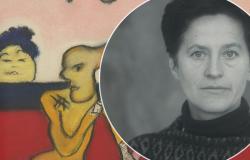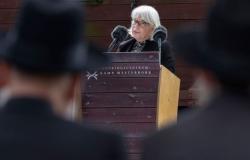Council of State For the time being, there is no clarity about the fate of approximately 2,500 third-country nationals who are still staying in the shelter for Ukrainian refugees. The Council of State, which must make a decision on this, first wants to obtain information from the European Court of Justice. Until then, all third-country nationals who have already gone to court to prevent their deportation from reception may remain in the Netherlands.
The European Court in Luxembourg usually does not decide quickly. It will therefore remain unclear for a longer time whether the third-country nationals, refugees from Ukraine who do not have a Ukrainian passport, will be allowed to stay here or whether they will have to return to Ukraine or their country of origin. The Council of State also finds this undesirable and points out the uncertainty for this group and the legal inequality that arises: those who have already gone to court are now allowed to stay, those who did not can still be removed from the shelter.
That is why the Council of State, just as the court in Amsterdam previously did, has requested a rapid procedure. It is expected that the request from ‘the highest court of the Netherlands’ will carry extra weight. “It will not be resolved within three months,” a spokesperson for the Council of State tempers expectations. “But we do expect it to be clear in the second half of this year.”
This is necessary, because after March 2025 the European directive on the basis of which Ukrainians now receive protection in EU countries will no longer apply.
So-called third-country nationals are refugees from Ukraine who do not have Ukrainian nationality. This includes Nigerians, Pakistanis and Moroccans who stayed in Ukraine with a temporary work or student visa. After the Russian invasion, they also fled the country and were able to stay in the same reception centers in the Netherlands as people with a Ukrainian passport.
Safely back to your country of origin
Ukrainian refugees now know that they can stay in the Netherlands or another EU country until March 2025. But State Secretary Van der Burg has wanted the third-country nationals to leave the shelter since last summer. According to him, they can safely return to their country of origin. Anyone who is unable to do so can apply for asylum in the Netherlands. However, the chance that people from Nigeria, Morocco and Pakistan will receive an asylum permit here is small, because those countries are considered safe.
The deadline for departure was April 2, but several courts stopped this. They agreed with third-country nationals who initiated proceedings. It led to chaos in the reception locations and a lot of emotions among the refugees. Some municipalities allowed third-country nationals to stay longer, while other municipalities expelled them from reception. And in some municipalities, third-country nationals who were expelled from the shelter on one day were admitted to another shelter the next day.
The ruling of the Council of State, the highest court in this case, should put an end to all uncertainty. The ruling applies to 16 cases involving third-country nationals, but is seen as a guideline for any other cases.
A total of approximately 4,900 third-country nationals are staying in Ukraine shelters in the Netherlands. About 2,400 of them are allowed to stay there because they have permanent residency in Ukraine or because they are married to someone with a Ukrainian passport.
Free unlimited access to Showbytes? Which can!
Log in or create an account and never miss anything from the stars.
Yes, I want free unlimited access
Tags: Hundreds thirdcountry nationals remain Ukraine shelters time Domestic






